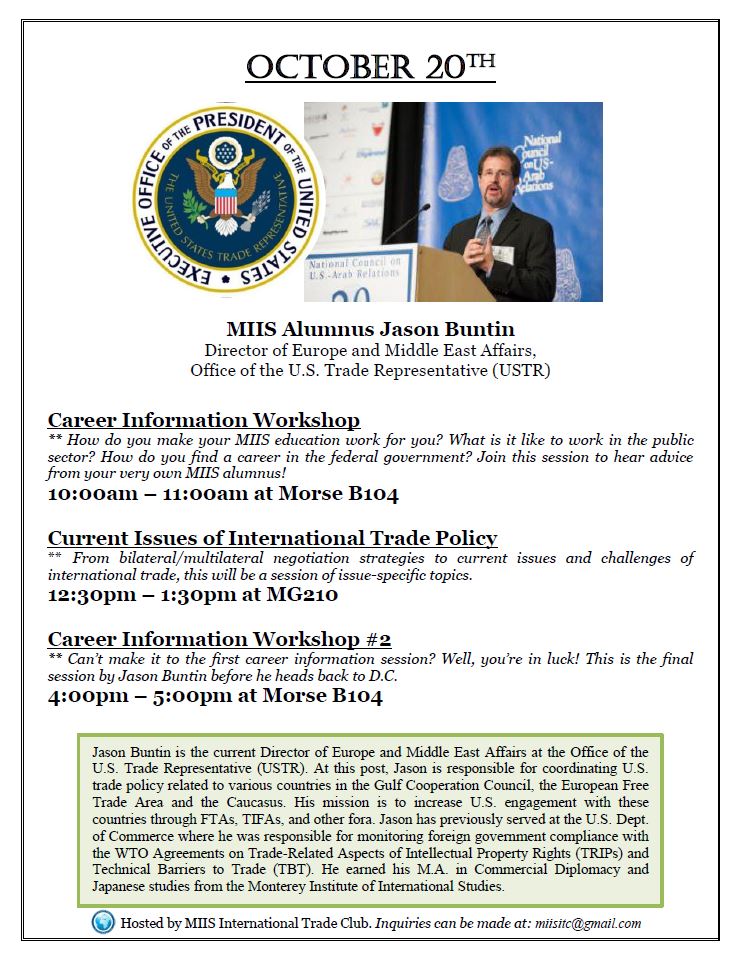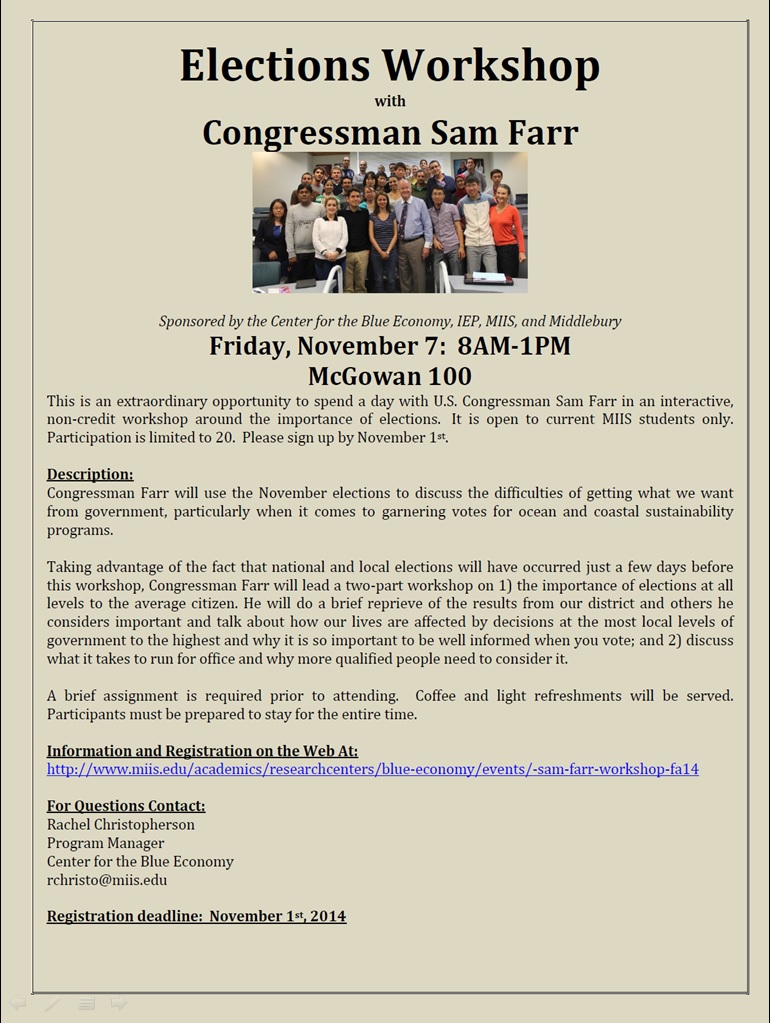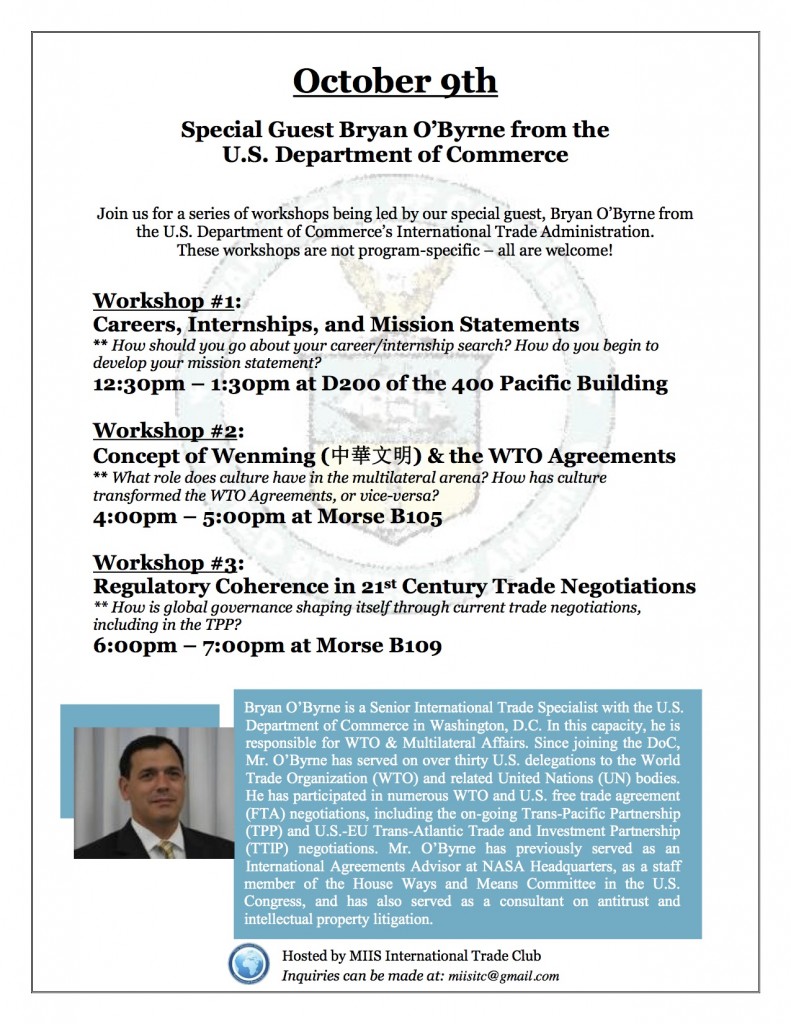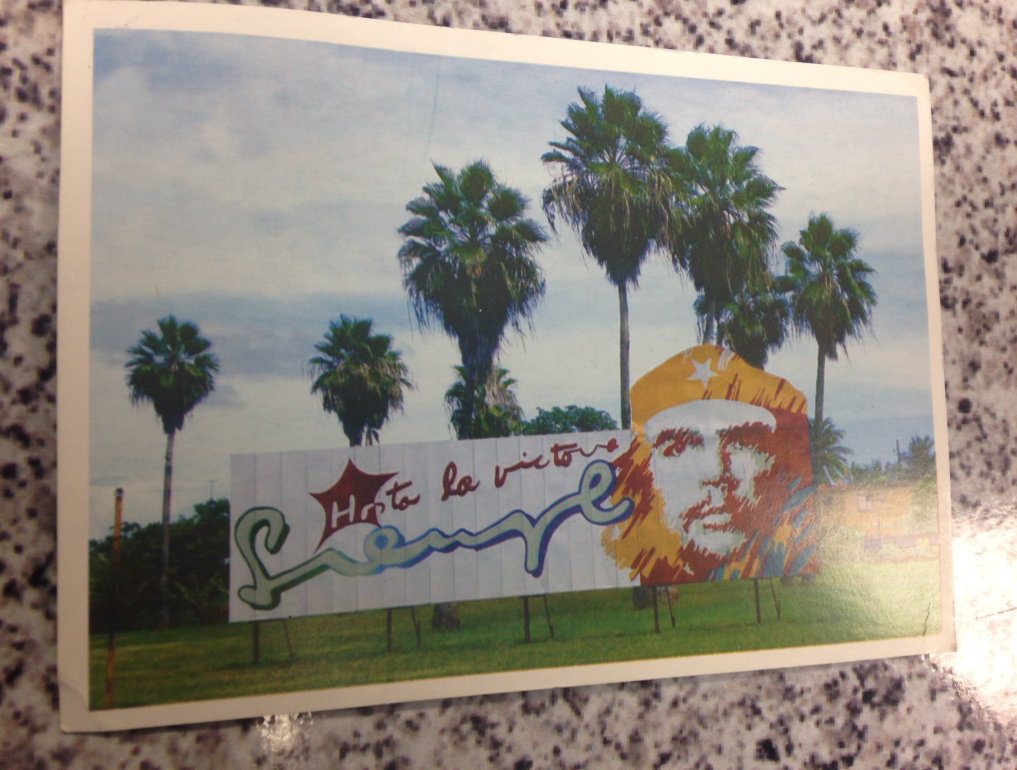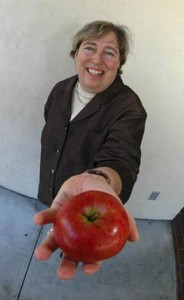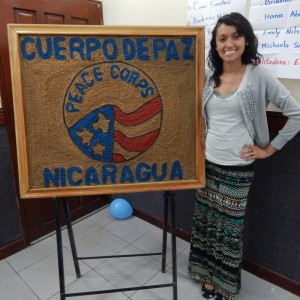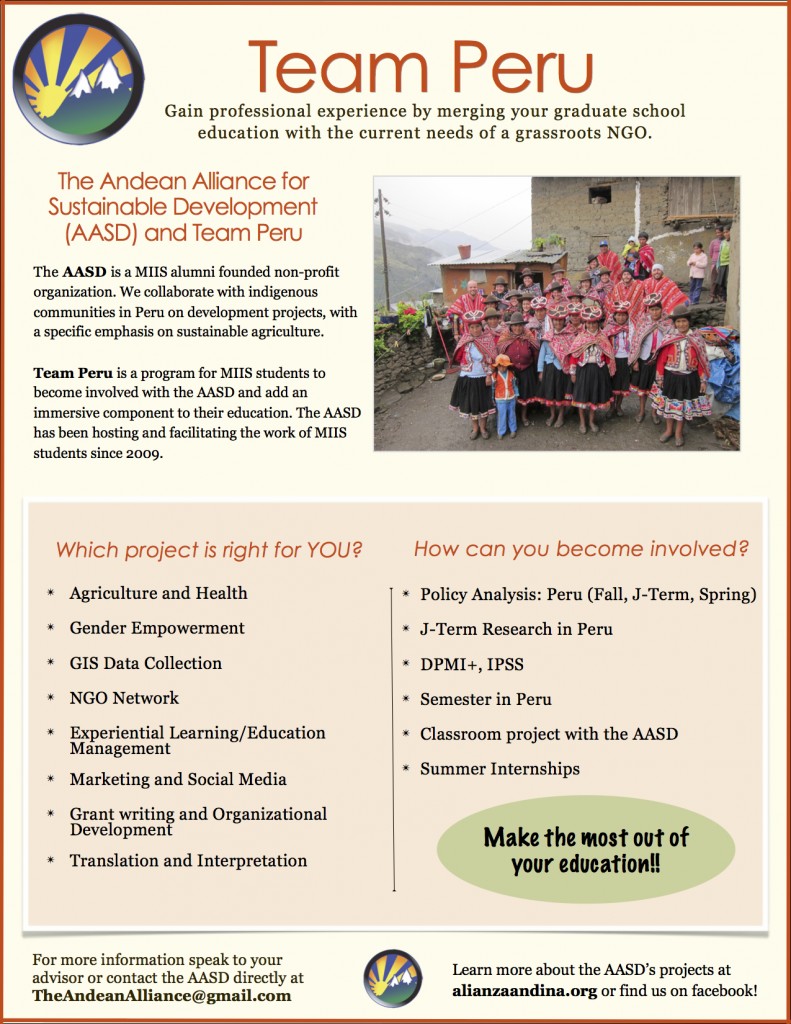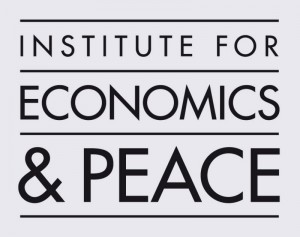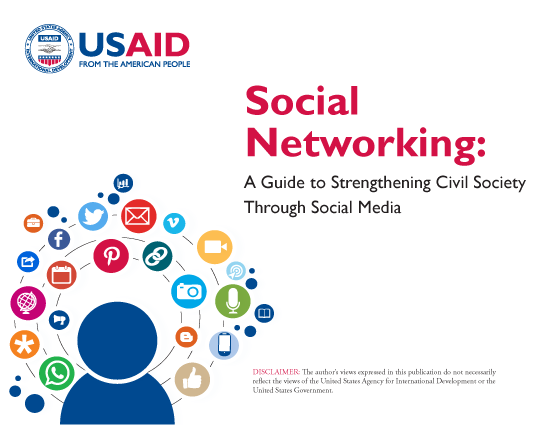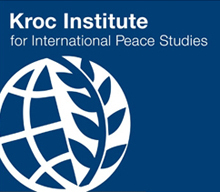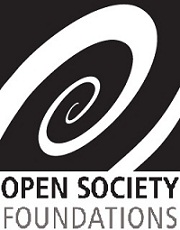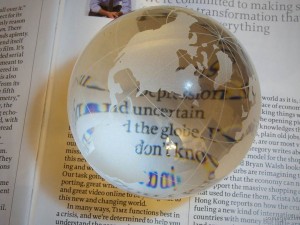Archive for MPA
Monday, September 29th, 2014
Apple Pie and Pineapple Sorbet: U.S. and Cuban Nationalism
Why is Cuba such a contradiction? Because Cuba is characterized by everything I was told the world should not be! Socialist not democratic, communist not capitalist, systemic human rights violations, a dictatorship, inefficient, unproductive; should I continue? I was able to get a sense of this notorious island during a seven day immersive learning excursion with twenty-seven other MIIS students and the renowned Professor Jan Black.
There was a time when I imagined Cuba as a socialist utopia. I had thought Cuba was going to be the national anthropomorphization of Eugene V. Debs famous quote that is “opposing a social order where it is possible for one man who does absolutely nothing that is useful to amass a fortune of hundreds of millions of dollars, while millions of men and women who work all the days of their lives to secure barely enough for a wretched existence. But, there is no substitute for actually visiting the country – after seven days in Cuba, I’ve realized that the little island nation, and the United States, are a lot more complex than I was led to believe in the comfort of my Midwest upbringing.
As an American, I grew up on the smell of apple pie; lightly toasted crust, crisscrossed across the top, somehow evoking feelings of liberty, justice…righteous stuff. You see, Cuba, at least for United States citizens, is one gigantic contradiction and trying to digest and make sense of the country through the nationalistic viewpoint from which my mind has been programmed to think, whether I like it or not, is no easy task. Close your eyes and think about apple pie. Now, envision biting into pineapple sorbet. So, I apologize now if, and that is a big if, you get to the end of this blog and you walk away more confused than you started. That’s fine though. Cuba could be the poster child for the phrase; the more you know the less you think you know.
Our professor and guide Dr. Jan Black told us to experience Cuba using our five senses. I would like to take the liberty of taking you, my reader, along for the ride with the idea of trying to engage your five senses. Unfortunately, I am less likely to engage your sense of smell. But, here we go:
We met with all different types of people, from Cuban foreign ministers to a diplomat from the U.S. Interest Section. We also met with individual Cubans, both pro-government and oppositionist. We met with U.S. expats working with the Cuban health system and Cuban students studying international relations. What was so trying after listening to all of them was that you could easily pick each one up and place them into two buckets, Cuban Nationals (CN) or U.S. Nationals (USN). Whether we were speaking to Cuban oppositionists or expat sympathizers of the Cuban government their rhetoric fit, nicely, within these two buckets. Their world-views and indeed those of us students had been systematically crafted by the nations from which they grew up and regardless of their support for either side or not they continued to use rhetoric that perpetuated the conflict between the United States and Cuba. What was most contradictory of all was that these two worldviews of the same conflict were like hearing two completely different stories for two completely different historical events told perpetually for generations upon generations without change.
How are these national worldviews constructed within a citizenry? It is often much more subtle than one would assume. Irrespective of whether we understand nationalism as a positive or negative force, it is generally acknowledged that nationalism places the nation on the highest pedestal and viewed as the supreme agency of meaning, collective identity, and moral justification. Critically noting that one of the powerful ways in which nationalism becomes historically instated is through its presumption that the nation is sacred, likening it to be equivalent to the church. Interestingly, if nationalism is being valued as sacred within the population we can see its physical manifestation in the ritualized images of national leaders and national public ceremonies that are underscored by the nations presumed history of greatness. Harry Anastasiou, a professor of Conflict Resolution at Portland State University and world-renowned leader in the settlement process in Cyprus, goes as far to claim nationalism can be a justification for divine election.
Click here to read more
Thursday, September 25th, 2014
Spring and Summer Opportunities in Russia!
Applications Invited for a Trip to the Russian Far East in Spring 2015:
The Graduate Initiative in Russian Studies is pleased to announce that two MIIS and two Middlebury students will participate in a research trip to the Russian Far East under the supervision of Professor Tsuneo Akaha (GSIPM). The trip is designed to introduce the participants to the political and economic issues of contemporary Russia, with a focus on her Far Eastern territories, and relations with the neighboring countries. Students will take part in meetings with faculty, researchers, and students of Far Eastern Federal University in Vladivostok and the Economic Research Institute in Khabarovsk, as well as local community representatives in these two largest cities in the Far East. The students will develop a research report based on their trip and pre-trip and post-trip research. Students who wish to earn academic credit will consult with Prof. Akaha and Prof. Vassilieva.
The entire cost of the trip will be covered by the Graduate Initiative in Russian Studies, a MIIS project funded by Carnegie Corporation of New York.
Preference will be given to students with advanced Russian language skills.
Two MIIS participants will be selected through the following procedures:
- An essay describing the applicant’s background and interest in Russia (including the Far East) and her relations with the regional neighbors, including Korea, Mongolia, China, and Japan. The essay should be three-pages long and submitted by email to Prof. Akaha and Prof. Anna Vassilieva by Friday, November 7, 2014.
- An up-to-date resume, to be submitted along with the above essay.
- An oral interview after review of the above submissions.
Applicants will be notified of the results of the selection by Friday, November 14, 2014.
Inquiries may be addressed to Prof. Akaha at takaha@miis.edu or Prof. Vassilieva at avassili@miis.edu.
Applications Invited for Research Trips or Internships in Russia in Summer 2015:
The Graduate Initiative in Russian Studies is pleased to announce that there are funds available for four MIIS students to undertake an internship and/or research in Russia in the summer of 2015.
The entire cost of the trip will be covered by the Graduate Initiative in Russian Studies, a MIIS project funded by Carnegie Corporation of New York. The available funding covers round-trip travel, accommodation allowance, and miscellaneous expenses. Only students with advanced Russian language skills will be considered.
Four students will be selected through the following procedures:
- An essay in Russian describing the applicant’s background and interest in Russia. The essay should be three-pages long and submitted by email to Prof. Anna Vassilieva by Sunday, March 1, 2015.
- An up-to-date resume, to be submitted along with the above essay.
- A detailed research/internship proposal, including desired placement, focus of research/internship, and deliverable.
- An oral interview after review of the above submissions.
Applicants will be notified of the results of the selection by Sunday, March 15, 2015.
Inquiries may be addressed to Prof. Vassilieva at avassili@miis.edu.
Thursday, September 25th, 2014
Upcoming lecture by Mr. Han Dong-man, Consul General of the Republic of Korea in San Francisco
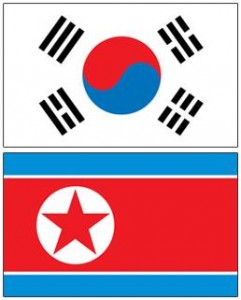
A Vision of the Inter-Korea Relations and the U.S. Korea Alliance
Mr. Han Dong-man has been serving as Consul General of the Republic of Korea in San Francisco since May 2013. Consul General Han received his Bachelor’s at Yonsei University in Korea and his Master’s in International Organization Law at the Pantheon-Sorbonne University in Paris, France. He joined the Ministry of Foreign Affairs in 1985 and has held Secretary posts in Algeria, the United Kingdom, and Australia as well as in the Office of the President in Korea. In 2002, he served as the Director of the Security Policy Division at the Ministry of Foreign Affairs and Trade and as Consul at the Korean Consulate General in New York. He also served as the Ministry-Counsellor at the Korean Embassy in Washington D.C. Prior to his post in San Francisco, he served as the Director-General of the International Economic Affairs Bureau of the Korean Ministry of Foreign Affairs (2011 – 2013). Consul General Han received the Order of the Service Medal in 2012 and he has written four books, including The Next 10 Years of Korea, an insightful look at the future of Korea on the international stage for the next decade to come. He is married and has two sons.
Event details:
Open to the public
Irvine Auditorium, Monterey Institute of International Studies
6:00-7:30 pm, Thursday, October 2, 2014
This lecture is co-sponsored by The Center for East Asian Studies, Monterey Institute of International Studies and The Gentrain Society of Monterey Peninsula College.
For inquiry, contact Prof. Tsuneo Akaha, Monterey Institute of International Studies at (831) 647-3564.
Wednesday, September 24th, 2014
MIIS students meet President Obama’s paternal grandmother in Kenya!
Over the summer, students participating in DPMI Kenya had the opportunity to visit President Barack Obama’s paternal grandmother! She lives in the province of Nyanza, on the eastern edge of Lake Victoria. Nyanza is a Bantu word which means “a large mass of water.” The provincial capital is Kisumu, where the DPMI training is centered in partnership with the Omega Foundation.
Said DPMI Kenya participant Maritza Munzon: “There is lots of natural beauty near town and I feel fortunate to have taken a walk through Kakamega Forest, taken a boat ride on the biggest lake in the world (Lake Victoria) and visited President Obama’s paternal grandmother! I never thought I’d get to do any of it, let alone the last part!”
Tuesday, September 23rd, 2014
GSIPM Dean’s Seminar Series with Professor Beryl Levinger
Participation: Guiding Value or Empty Buzzword?
During Professor Levinger’s recent sabbatical, she worked with 14 international organizations in 16 different contexts and countries. The one thread that bound this set of amazingly diverse experiences together is that each organization claimed to embrace participation as a value that guided their work. Her talk will explore the very diverse meanings that organizations attach to the term “participation,” and what this means for the future of development work.
All are welcome.
When: Tuesday, September 30, 2014 from 12:15 – 1:45 PM
Where: McGowan 100
Friday, September 12th, 2014
What if your DPMI Plus Assignment was the PEACE CORPS?
Michelle Zaragoza, IEP, left the United States to begin her Peace Corps service as an Environmental Education Promoter in Nicaragua last month. What follows is an excerpt from her blog: “My Journey as a Peace Corps Master’s International Volunteer”
How it all began (152 days til departure):
March 5th: Just another regular Wednesday morning. I was pacing my living room anxious about the phone call I was about to make to my Peace Corps recruiter. Not having heard from them in more than two months I was more worried than excited.
First try went to voice mail and I thought I would just try tomorrow…I called again and she picked up on the first ring. She started some small talk, and asked what I was up to in my life. The whole time I was hoping she would just get to the point and tell me what ever bad news she had. She asked about the research I was doing in school and I gave her a 30 second description of my Fulbright proposal for an environmental education study in Nicaragua. She laughed…why was she laughing!? After what seemed like for ever she says, “Well we have a slight problem”…here it was!
She says, “I know we had originally told you you’d leave in September but that has changed. Could you leave earlier?”
Confused I said yes, although a little worried about how much earlier that meant. And she says, “We think you would be perfect for our Environmental Science Education program in Nicaragua that leaves in Aug…” YES!!!! YES and YES. I may have yelled yes about five times into her poor ear! After waiting ten months since I first sent in my application I was being extended an invitation to my top choice!
Monday, September 8th, 2014
DPMI Kenya – Reflections from Abroad
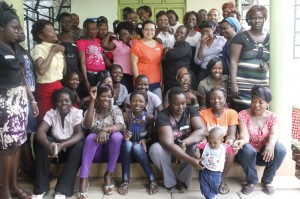
– Blog contributed by Maritza Munzon, MPA/IEM ‘15
I was in Kenya a total of two months; at the time it felt longer, maybe because it’s a slower pace of life in Kisumu, or maybe because compared to a year at MIIS anything else seems to go at a snail’s pace. Whichever the case, slow was nice and much needed. Now looking back it seems like it all went by in a blur, I can’t believe how much I saw and experienced in two short months, while still having time to cook, read for fun and watch the World Cup every night! The DPMI training was intense of course, but nothing short of what is to be expected from a MIIS workshop, except that it was longer (10 days). This meant 8 hours a day of group work, charting, mapping, learning new tools and immediately applying them. We mostly failed at implementing the tools properly, but a great deal was learned from correcting our mistakes. I can now say that I am no expert at program design, but I know how to tackle the task of designing a program.
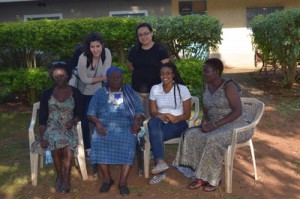 Our guide/mentor/program liaison, Rose Waringa, is a multitasking superwomen, she did a great job of taking care of us in and out of Kisumu. On the weekends we were taken to explore the local sites, it was great to get out of Kisumu and leave the books behind for a bit. There is LOTS of natural beauty near town and I feel fortunate to have taken a walk through Kakamega Forest, taken a boat ride on the biggest lake in the world (Lake Victoria) and visited President Obama’s paternal grandmother! Never thought I’d get to do any of it, let alone the last part!
Our guide/mentor/program liaison, Rose Waringa, is a multitasking superwomen, she did a great job of taking care of us in and out of Kisumu. On the weekends we were taken to explore the local sites, it was great to get out of Kisumu and leave the books behind for a bit. There is LOTS of natural beauty near town and I feel fortunate to have taken a walk through Kakamega Forest, taken a boat ride on the biggest lake in the world (Lake Victoria) and visited President Obama’s paternal grandmother! Never thought I’d get to do any of it, let alone the last part!
Click here to read more
Monday, August 25th, 2014
Research Fellowship with Institute for Economics & Peace
The Institute for Economics and Peace is searching for a full-time Research Fellow to join their research team at their headquarters in Sydney, Australia. Click here to download full position description.
A Research Fellow will conduct research on topics related to the Global Peace Index, peace economics, development studies and peace and conflict studies.
Application Deadline: August 28th, 2014
Selection Criteria:
1. Master’s degree (PhD an advantage) in a combination of economics and/or statistics, international
relations or other social sciences discipline.
2. Minimum of three to five years professional experience conducting empirical research and
quantitative data analysis specifically related to a combination of social sciences, development
studies, economics, statistics and peace and conflict studies.
3. Experience working with governmental and non-governmental organisations (NGOs) on peace
economics, peace and conflict studies, and international development issues.
4. Experience handling large datasets and knowledge of R, SPSS, STATA, and other related econometric
packages is required. Ability to write code for R, SPSS or STATA and advanced Microsoft Excel skills.
5. Track record of demonstrable analytical and data visualisation skills.
6. Excellent verbal and written communication skills. Competence to undertake research assignments
and project manage teams with minimal supervision.
Applications to: CV and cover letter addressing the selection criteria and desired personal qualities to Lucie
Paleckova on info@economicsandpeace.org
Deadline for applications: 28 August, 2014
Website: www.economicsandpeace.org, www.visionofhumanity.org
Friday, August 15th, 2014
USAID Releases guide to Strengthening Civil Society Through Social Media
Social Networking: A Guide to Strengthening Civil Society through Social Media has been developed as a reference guide for civil society organizations (CSOs) working in partnership with the U.S. Agency for International Development and its implementing partners in advancing their critical missions. In line with the USAID Strategy on Democracy, Human Rights and Governance (June 2013), this manual is designed as a blueprint for CSOs to:
• Integrate and use technology to promote democracy, human rights and governance;
• Utilize social media to support greater citizen participation and transparent political
processes; and
• Strengthen mutual accountability among CSOs, government institutions and
citizens by creating real-time and direct interaction and organizing.
Social media operations are most effective when they are strategically incorporated as part of an organization’s outreach, program design and implementation, and monitoring and evaluation efforts. With this in mind, the guide is intended as a local capacity building tool to strengthen the ability of entire organizations, their staff and members to deliver greater impact. This guide (Version 1, 2014), presents an overview of the most widely-used and accessible
social media tools. Future manuals will capture developments in the social media.
Social Networking: A Guide to Strengthening Civil Society through Social Media includes interactive features such
as links to multimedia content, websites and workouts to help civil society organizations engage and share information.
View the flipbook and download a PDF version at www.usaid.gov/SMGuide4CSO. Use #SMGuide4
Friday, August 8th, 2014
Job Openings in Policy Research and Data Analysis
Research Associate in Policy Studies, Kroc Institute, University of Notre Dame
The Kroc Institute for International Peace Studies at the University of Notre Dame seeks applications for the position of Research Associate in Policy Studies. The Research Associate will work closely with the Director of Policy Studies at the Kroc Institute on research projects, curriculum development, and organizing research and education events both at Notre Dame and elsewhere.
Application deadline: August 8th
Open Data Analyst, Open Society Foundations, London or New York
The CODEX program seeks to leverage a wide range of open (and sometimes not-so-open) information relating to the extraction of oil, gas, and mineral resources in developing countries. The purpose of the work is to demonstrate, using innovative techniques and creative approaches to data-storytelling, how open data can be a powerful tool in the fight against mismanagement and plunder of natural resource wealth in the world’s poorest countries. This work would constitute a contribution to the growing field of “Open Government.”
Application deadline: August 17th
Monday, August 4th, 2014
Courage Under Fire: An Intimate Look at UN Peacekeeping
UNA-USA – Nationwide conference call on Wednesday, August 6 at 2 p.m. ET
with
Ken Payumo
Chief of the Peacekeeping Operations Support Section for the Department of Safety and Security, United Nations
Wednesday, August 6, 2 p.m. ET
U.S./Canada Dial-in: 866-454-4208
Passcode: 8136862
Please RSVP via email to membership@unausa.org.
What do you do when you are up against a government trying to harm its own people? As men with guns tried to enter the UN camp in Bor, South Sudan, Ken Payumo, a civilian officer in charge, stood up to the South Sudanese military when 12,000 refugees fled to the UN base for safety. His brave actions are thought to have saved thousands of lives.
Join us for a conversation with Mr. Payumo, who will provide a closer look at the day-to-day challenges of UN peacekeeping and give an update on the current crisis in South Sudan.
About our speaker:
Ken Payumo is currently the Chief of the Peacekeeping Operations Support Section for the Department of Safety and Security. This section is responsible for overseeing the security of all UN peacekeeping missions. Having more than 14 years of experience in the United Nations, Mr. Payumo’s UN service includes that of Legal and Policy Advisor, United Nations Transitional Administration in East Timor (UNTAET); Political Officer, Department of Peacekeeping Operations (DPKO)/Asia Middle East Division (AMED); Mission Management Officer (DPKO Police Division), and most recently Head of Office for Unity and later Jonglei states, United Nations Mission in South Sudan (UNMISS).
Prior to the UN, Mr. Payumo had served as a police officer in the New York City Police Department. Mr. Payumo is a citizen of the United States of America and was born in New York City.
-Text taken directly from e-mail from UNA-USA Membership membership@unausa.org
Wednesday, July 30th, 2014
U.S. TIP Grant Solicitation for research on Trafficking in Persons
Email from TIP Office Public Outreach [TIPOutreach@state.gov]
U.S. Department of State
Office to Monitor and Combat Trafficking in Persons
Competitive Grant Solicitation for Research on Trafficking in Persons in Supply Chains in Sub-Saharan Africa
The Office to Monitor and Combat Trafficking in Persons announces an open competition for funding of one or more projects to answer the following research question: How do supply chains that touch sub-Saharan Africa operate and intersect with trafficking in persons, and prevent trafficking in sub-Saharan Africa?
Using the results of this research question, the successful applicant will develop a highly detailed typology across sectors, commodities, regions or other subdivisions that become apparent during the research. The goal of the research is to enable governments and businesses to identify risks and best practices of programs, policies, and laws to combat those risks.
The request for proposals is posted on www.grantsolutions.gov and www.grants.gov under funding opportunity number AT-ATC-14-009. To be considered for funding, proposals must be submitted by Wednesday, August 27, 2014 at 5:00 p.m. Eastern Daylight Time.
U.S.-based and foreign non-profit organizations, for-profit organizations, non-governmental organizations (NGOs), public international organizations (PIOs), and institutions of higher education are eligible to apply.
Tuesday, July 29th, 2014
Tesla Pitch Continued: Cobalt, Graphite and Lithium
Last week the Peace Trade and Development (PTD) students met with Tesla’s global trade team at the factory in Fremont. The students were there to offer their pitch to the Tesla Challenge which called for proposals on sourcing raw materials for the new Gigafactory. In addition to the pitch session, the students were treated to lunch and a VIP tour of the Tesla factory, an impressive and re-purposed building conveniently situated in a California Free Trade Zone. “I was treating the presentation like a final exam, but when it came time to present, I had realized that we were speaking to real individuals with genuine concerns about their long-term acquisition of critical minerals. This wasn’t a quiz–my team had done in-depth research, provided a reasonable strategy, and were ready to have a conversation about alternatives.” – Shruti Korada, PTD summer 2014 student What was the best part of the Tesla challenge? Well, that’s subjective but things definitely got intriguing when one team suggested sourcing Lithium from the moon and another proposed a corporate-backed coup d’etat… Learn more about the PTD program via: go.miis.edu/ptd.
Monday, July 28th, 2014
DPMI: A learning journey
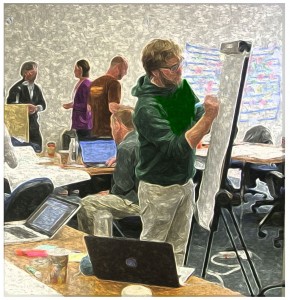
Josh Fleming (MA IPS ’15) participates in a facilitation exercise during the second week of DPMI Monterey this June.
I had heard repeatedly on campus that DPMI (Design, Partnering, Management and Innovation) is one of the most useful courses you can take. I found this hard to believe at first, but now I agree. If you haven’t taken this leadership training in international development project management and social change then you should reconsider.
You will walk away from the DPMI training having learned some ground-breaking and ‘tried and true’ tools to solving your next problem, motivating your staff or making your next big partnership. Tools that break down these processes into quantifiable, qualifiable methods to be used at a given moment or throughout the lifespan of a project.
If you are a non-profit guru, a development practitioner in training, or a social change maker then you will notice, quickly, that these tools and capacities that DPMI finds so important are actually pretty important. This is how USAID, and other major non-profit employers do it, and whether you like it or not USAID often sets the standard. Additionally, from the United Nations to grassroots organizations, from CSR departments to State department recruiters–most are looking for project management skills. DPMI fits them nicely into the longest three weeks of your life (Yes, I’ve thrown in a bit of sarcasm). It’s worth it though. I implore you to find one job posting that doesn’t ask for project management skills.
Click here to read more
Friday, July 25th, 2014
Incoming MPA Student Reaches-out to Faculty To Develop Ultimate International Development Summer Reading List!
Returning to school after some time away from academia is a precious challenge. However being in school is also a commodity. While most of my undergraduate peers are beginning their careers, perhaps even starting to put down roots, graduate students choose to go back to school in order to further their education and get closer to their career goals. As a recently accepted Master of Public Administration (MPA) student at the Monterey Institute of International Studies (MIIS), I understand the initial fears and concerns students may have upon starting a new program. It has been about four months since I received the good news and I have had plenty of time to determine how I feel about attending MIIS in the fall. Although I am overall excited and grateful, I am honestly a bit nervous. Seeing that my academic skills seemed rusty I took it upon myself to email the MPA program faculty requesting ideas, readings, books, articles, and any other resource I should look at before classes start in August. Unsurprisingly, the faculty was supportive and accommodating. The following is a list of 18 recommended readings from Monterey Institute MPA and MAIPS faculty:
- Take a look online at William Arrocha’s and Nuket Khardam’s syllabi for their development theory courses here at MIIS.
- Study and absorb UNDP’s concept of human development.
- Browse the last ten years of the World Bank’s World Development Report.
- The Anti-Politics Machine by James Ferguson
- Ideas for Development by Robert Chambers
- Provocations for Development by Robert Chambers
- The Honor Code by Kwame Appiah
- Capital by Thomas Piketty (Editor’s Note: The GSIPM Dean may take you out to lunch if you read every word of this 600-page monster!)
- The Tyranny of Experts by William Easterly
- Social Physics by Alex Pentland
- Humble Enquiry by Edgar Schein
- Power of Development by Jonathon Crush
- Thinking Fast and Slow by Daniel Kahneman
- The Routes of Man by Ted Conover
- Why Nations Fail by Daren Acemoglu
- Encountering Development by Arturo Escobar
- “Organizational Assessment: a Framework for Improving Performance” (Free book available here http://www.idrc.ca/openebooks/998-4/).
- To get more immersed in policy, review the articles in https://www.project-syndicate.org/ (This website publishes policy concerns and ideas of leading global thinkers and policymakers).
After taking a look at this list, it became apparent that in order to succeed at MIIS, students must be engaged and passionate about their programs. Without a passion and thirst for knowledge, completing a graduate degree program would be an insurmountable task. Incoming MIIS students may be a bit hesitant or nervous about the challenge ahead. Although these feelings are natural, it is necessary to rise above, be proactive and start to materialize your short and long-term goals. MIIS provides the resources and opportunities; it is up to us, the incoming graduate students to bring the passion and innovation. It is time to start preparing and planning for a bright future here at MIIS. About the Author: Chris Callaghan is an incoming Master of Public Administration (MPA) Candidate for the fall 2014 semester. He is a graduate of the University of California Santa Cruz.
